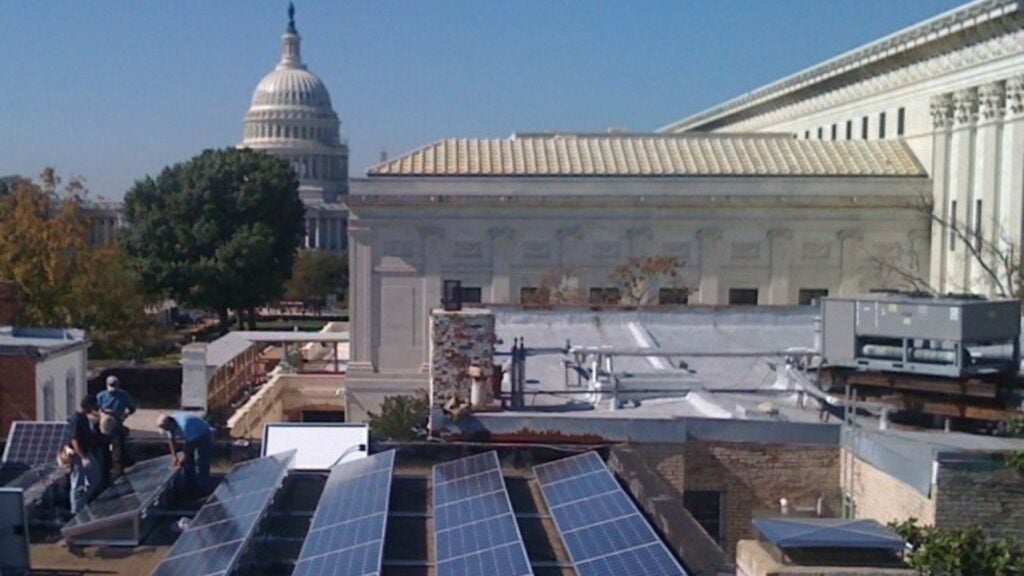What to do when your neighbors are throwing shade on your solar array

Solar isn’t the only thing growing in the District. Many homeowners are adding an extra floor, increasing the height of their homes. What happens when these two come into conflict? New or renovated construction can block sunlight from existing arrays. This means the array will produce less electricity and thus less savings.
D.C. zoning rules offer solar owners some protection
OK, so your neighbor put up an extra floor and it’s blocking your solar, what can you do? This depends on where you live.
The District is divided into different zones. These zones determine what kinds of buildings can be built in them. Most residences are located in zones called “R” or “RF”. Use this map to see what zone you live in.
You have some recourse if you live in these kinds of zones. If your neighbor is building a new building or an addition, they cannot significantly interfere with an existing solar system on an abutting property.
You must meet the following requirements:
- Your solar energy system must be at least 2 kW in size.
- At the time your neighbor applies for a building permit (or files an application with the D.C. BZA) to allow the construction, your solar energy system must be either:
- Be permitted and operational or
- Authorized by a building permit and operational within six months of the neighbor’s application.
- To qualify for protection, you must be able to prove the proposed construction increases shading on your solar energy system by more than five percent. A solar shading study can determine this.
Note: These protections do not apply to fully detached homes in “R” zones.
How these protections are enforced
Zoning Regulations require that anyone seeking to build in the “R” or “RF” zones must submit one of the following:
- an affidavit that there is no abutting solar energy system;
- a study that the construction will not interfere with an existing solar energy system; or
- a written agreement with the neighbor whose system they are disrupting.
The use of the term “abutting” in zoning code usually means a property that is adjacent to the one in question. This means it is unlikely the provisions described here apply to affected properties near a new structure that are not adjacent to that structure.
If an adjacent neighbor’s construction increases shading on your solar energy system by five percent or more, then the neighbor must get your permission before obtaining a building permit. This gives you the ability to seek reimbursement for a loss of value to your system.
If you think you qualify for these solar protections, but the neighbor did not get your permission before building, then we recommend reaching out to the neighbor. You should contact the D.C. Department of Buildings if you and your neighbor are unable to reach an agreement on compensation.
NOTE: This content is general education on the policies in place in D.C. on this issue. Solar United Neighbors cannot offer legal advice.
